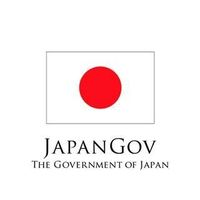The Tariff Storm: Trump’s Trade War Unleashed
April 4, 2025, 10:18 pm

Location: Belgium, Brussels-Capital, Brussels
Employees: 1001-5000
Founded date: 1958
Total raised: $310.85K
In a bold and controversial move, President Donald Trump has ignited a trade war that reverberates across the globe. His sweeping tariffs on imports have sent shockwaves through markets, rattling economies and igniting fears of recession. The world is bracing for impact as nations scramble to respond.
On April 3, 2025, Trump announced a series of tariffs that target allies and rivals alike. A 10% baseline tariff on all imports is just the tip of the iceberg. Higher rates are aimed at key trading partners, including a staggering 54% on imports from China. This is not just a trade policy; it’s a declaration of economic warfare.
The repercussions are immediate and severe. Global markets have reacted with turbulence. Stocks are tumbling, and investors are fleeing to safe havens like gold and bonds. The financial landscape is shifting, and uncertainty looms large. Analysts warn that these tariffs could reignite inflation, pushing prices higher for American families. The average household could see costs rise by thousands of dollars. This is a heavy burden for a president who promised to lower living expenses.
Trump argues that these tariffs are a necessary response to barriers imposed on U.S. goods. He claims they will create jobs and bolster American manufacturing. However, the reality is more complex. Companies are already feeling the strain. Stellantis, a major car manufacturer, announced temporary layoffs and plant closures in Canada and Mexico. The ripple effects are undeniable.
The European Union, Japan, South Korea, and Taiwan are among the hardest hit. The EU faces a 20% tariff, while Japan and South Korea are hit with 24% and 25%, respectively. Even uninhabited Antarctic islands are not spared. The global order, shaped by decades of trade liberalization, is crumbling. Leaders are voicing their concerns. The EU chief warns of dire consequences for millions worldwide. The stakes are high, and the fallout could be catastrophic.
Retaliation is on the horizon. China has vowed to respond, and other nations are weighing their options. South Korea and Mexico are holding off for now, seeking concessions before the tariffs take effect. The threat of a tit-for-tat escalation looms large. This is a chess game with high stakes, and the pieces are moving rapidly.
Trump’s tariffs are not just economic tools; they are political weapons. They target countries that are crucial to U.S. geopolitical interests. Japan and South Korea, home to significant U.S. military bases, are feeling the heat. Taiwan, under pressure from China, faces a 32% tariff. The implications are profound. These tariffs could reshape alliances and force nations to reconsider their economic partnerships.
Germany’s economy is particularly vulnerable. Analysts estimate that the tariffs could wipe €750 billion from the region’s economy. This is a staggering figure that underscores the potential devastation. German officials are already discussing closer ties with Canada and Mexico, seeking new alliances in the face of Trump’s aggressive policies.
The Canadian response is equally telling. Prime Minister Mark Carney has indicated a desire to strengthen trade ties with Germany. Canada, already facing 25% tariffs on many goods, is reevaluating its economic dependence on the U.S. The landscape is shifting, and nations are looking for new partners to weather the storm.
The long-term effects of these tariffs remain uncertain. Economists caution that the path to recovery will be long and fraught with challenges. The administration insists that the benefits will materialize over time, but skepticism abounds. Many Americans are worried about the immediate impact on their wallets.
As the world watches, Trump’s trade war unfolds like a high-stakes drama. The consequences are far-reaching, affecting not just economies but lives. The stakes are high, and the players are many. The global economy is a delicate web, and one wrong move could send it spiraling.
In the coming weeks, the true impact of these tariffs will become clearer. Companies will adjust, consumers will react, and governments will respond. The trade war is just beginning, and the world is holding its breath. Will it lead to a new era of protectionism, or will cooler heads prevail? Only time will tell.
For now, the storm rages on. The winds of change are blowing, and the world must navigate these turbulent waters. The trade war is not just a battle of tariffs; it’s a clash of ideologies, a test of resolve. As nations brace for impact, one thing is certain: the landscape of global trade will never be the same.
On April 3, 2025, Trump announced a series of tariffs that target allies and rivals alike. A 10% baseline tariff on all imports is just the tip of the iceberg. Higher rates are aimed at key trading partners, including a staggering 54% on imports from China. This is not just a trade policy; it’s a declaration of economic warfare.
The repercussions are immediate and severe. Global markets have reacted with turbulence. Stocks are tumbling, and investors are fleeing to safe havens like gold and bonds. The financial landscape is shifting, and uncertainty looms large. Analysts warn that these tariffs could reignite inflation, pushing prices higher for American families. The average household could see costs rise by thousands of dollars. This is a heavy burden for a president who promised to lower living expenses.
Trump argues that these tariffs are a necessary response to barriers imposed on U.S. goods. He claims they will create jobs and bolster American manufacturing. However, the reality is more complex. Companies are already feeling the strain. Stellantis, a major car manufacturer, announced temporary layoffs and plant closures in Canada and Mexico. The ripple effects are undeniable.
The European Union, Japan, South Korea, and Taiwan are among the hardest hit. The EU faces a 20% tariff, while Japan and South Korea are hit with 24% and 25%, respectively. Even uninhabited Antarctic islands are not spared. The global order, shaped by decades of trade liberalization, is crumbling. Leaders are voicing their concerns. The EU chief warns of dire consequences for millions worldwide. The stakes are high, and the fallout could be catastrophic.
Retaliation is on the horizon. China has vowed to respond, and other nations are weighing their options. South Korea and Mexico are holding off for now, seeking concessions before the tariffs take effect. The threat of a tit-for-tat escalation looms large. This is a chess game with high stakes, and the pieces are moving rapidly.
Trump’s tariffs are not just economic tools; they are political weapons. They target countries that are crucial to U.S. geopolitical interests. Japan and South Korea, home to significant U.S. military bases, are feeling the heat. Taiwan, under pressure from China, faces a 32% tariff. The implications are profound. These tariffs could reshape alliances and force nations to reconsider their economic partnerships.
Germany’s economy is particularly vulnerable. Analysts estimate that the tariffs could wipe €750 billion from the region’s economy. This is a staggering figure that underscores the potential devastation. German officials are already discussing closer ties with Canada and Mexico, seeking new alliances in the face of Trump’s aggressive policies.
The Canadian response is equally telling. Prime Minister Mark Carney has indicated a desire to strengthen trade ties with Germany. Canada, already facing 25% tariffs on many goods, is reevaluating its economic dependence on the U.S. The landscape is shifting, and nations are looking for new partners to weather the storm.
The long-term effects of these tariffs remain uncertain. Economists caution that the path to recovery will be long and fraught with challenges. The administration insists that the benefits will materialize over time, but skepticism abounds. Many Americans are worried about the immediate impact on their wallets.
As the world watches, Trump’s trade war unfolds like a high-stakes drama. The consequences are far-reaching, affecting not just economies but lives. The stakes are high, and the players are many. The global economy is a delicate web, and one wrong move could send it spiraling.
In the coming weeks, the true impact of these tariffs will become clearer. Companies will adjust, consumers will react, and governments will respond. The trade war is just beginning, and the world is holding its breath. Will it lead to a new era of protectionism, or will cooler heads prevail? Only time will tell.
For now, the storm rages on. The winds of change are blowing, and the world must navigate these turbulent waters. The trade war is not just a battle of tariffs; it’s a clash of ideologies, a test of resolve. As nations brace for impact, one thing is certain: the landscape of global trade will never be the same.
